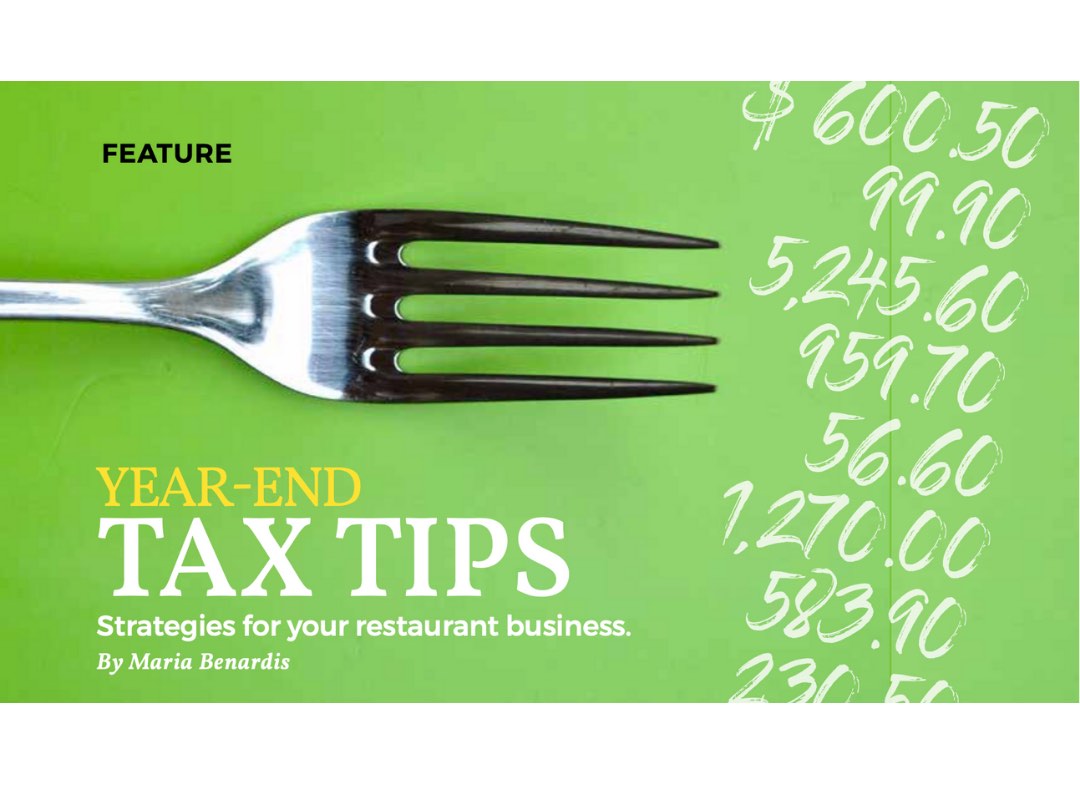Strategies for your restaurant business.
By Maria Benardis. Estiator Magazine, November 2019.
Click here to download the article.
It’s nearly that time of the year—tax time. Most of us hardly look forward to it. According to a 2018 survey released by TaxSlayer, 52 percent of taxpayers agree that the filing process is stressful. When asked to name the most difficult part of the process, taxpayers cited their three most common concerns: a large volume of documents necessary to put together, difficulty understanding tax laws, and the stress of not knowing if the results are correct. In fact, nearly six in ten Americans (57 percent) are not confident in their understanding of the U.S. tax code. Much of that sentiment boils down to feeling unprepared and ill-equipped to handle returns correctly.
If you’re anxious about tax preparation, you should know that there are certain things you can do to make the process less harrowing for yourself—and your accountant. And so, here are some year-end tax considerations to help you get prepared, maximize your deductions, and keep a tax audit at bay. Know your tax deductions and claim them all Despite the numerous expenses that come with the territory in the food industry, restaurant owners are eligible to take full advantage of a number of tax-saving deductions to help save money and stay compliant with the taxman. Generally, you can deduct the full amount of a business expense if it meets the criteria of ordinary and necessary and it is not a capital expense. You cannot deduct personal, living, or family expenses. However, if you have an expense for something that is used partly for business and partly for personal purposes, divide the total cost between the business and personal parts. You can deduct the business part. For example, if you borrow money and use 70% of it for business and the other 30% for a family vacation, you generally can deduct 70% of the interest as a business expense.
Explore Tax Credits You may qualify for a tax break if you hire individuals from certain groups, such as veterans, the disabled, former felons, recipients of food stamps, persons referred by vocational rehabilitation services, and more for the Work Opportunity Tax Credit. The credit generally is limited to the amount of the business income tax liability or social security tax owed.

